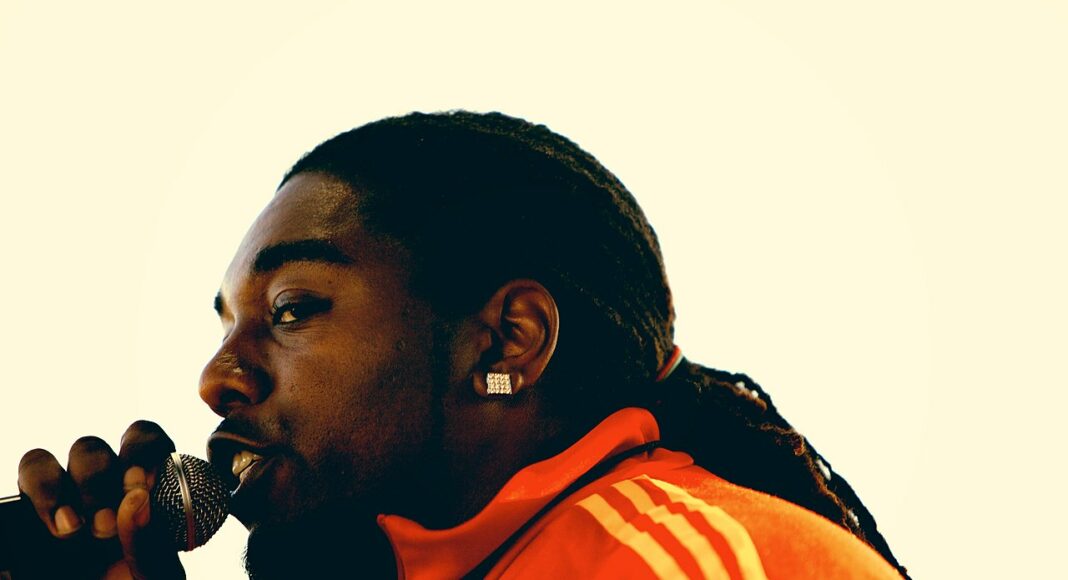The first time Demone Carter hung with Sultan Banks was at a high school backyard battle rap. By the time Banks walked in, Carter was already waist-deep in a slow-moving rap battle that had long since become a war of attrition.
“Me and this other kid from Andrew Hill had been battling for an hour or so and it wasn’t very good or entertaining,” Carter recalls. “Then he strolls in, asks if he can have the mic, and he’s just brilliant, destroys both of us. He was clearly the best rapper there.”
Within a few months, Carter, Banks and their friend Jesse James formed a crew together, Lackadaisical, making their performance debut at an Andrew Hill High School pep rally in 1994. Just a few years later, Banks would change the sound of rap entirely, producing beats for hip hop icons like Keak da Sneak, Too Short and E-40 under the name Traxamillion.
Sadly, this past weekend, Traxamillion passed away at the tragically young age of 43. Stereogum reports the producer had been battling cancer since 2017. Until recently, he had been living in hospice with his aunt in Santa Clara.
The late producer’s passing precipitated an outpouring of love online.
“We lost a true Bay Area cornerstone to cancer today,” tweeted hip hop tastemakers Empire. “Rest in Power to Traxamillion, the architect of the hyphy sound and a legendary producer to the fullest.”
“Rest up my fella you will be missed,” Vallejo rapper E-40 wrote on Instagram, captioning a video of Traxamillion developing his beat for the 2021 hit “I Stand on That” (featuring Joyner Lucas and T.I.).
Though he never worked with him directly, DJ Cutso of The Bangerz and Wild 94.9 tells Metro the two producers met often and shared a mutual passion for South Bay music.
“His mark on the Bay Area music scene will be indelible,” Cutso says.
Traxamillion’s distinct production—spare and gritty, but full of handclaps and the bounce of rubbery synths—laid the groundwork for much of the hyphy movement in the mid-2000s. Many genre classics often associated with Oakland, like “Sideshow” with Mistah F.A.B. and Too Short, and genre anthem “Super Hyphy” by Keak da Sneak, were brought into the world by the San Jose producer.
In 2018, Carter and his co-hosts on hip hop podcast Dad Bod Rap Pod interviewed Traxamillion for the show’s 30th episode. At the time, the producer revealed San Jose’s unique influence on his sound.
“He talked about growing up in San Jose and the Latino influence on his music, which was through freestyle and high-NRG [music],” Carter says. “Being from San Jose really helped shape what his sound would eventually be.”
And though the sound and aesthetic of hyphy will always be attached to his work, Traxamillion was never simply a hyphy artist, nor was his influence confined to the Bay’s hyphy years.
“He was a trailblazing pioneer,” Carter says. “The sound that he was a contributor to has really reshaped rap music. If you look at the stuff that DJ Mustard and YG and all these guys from LA ended up doing, it’s heavily based on the hyphy movement. A lot of what he contributed to is now just part and parcel of what we call rap music.”
Sirens, Traxamillion’s last album, was just released in May. The album featured all women rappers from the Bay Area, artists like Mother Goat, Qing Qi and Krissy Blanko, all going hard over Trax’s beats. The sample that opens late album track “Bounce Dat Ass” bursts forth like a rallying cry for the record itself: “I want to ask you right now, if you’re not standing at attention, to stand in vagina power and manifest your destiny.”
Ever a champion for his scene and his collaborators, as recently as July, Trax appeared in the music video for “What Happened (feat Lil Kayla),” from Sirens. In it, the San Jose producer drives a G-Wagon wearing an orange and black camo hat which reads “Slapps.” By the time the video was shot, he had been battling cancer for years.
“That’s who he was,” Carter says. “He was trying to make success for others. He was continually trying to make others shine.”



